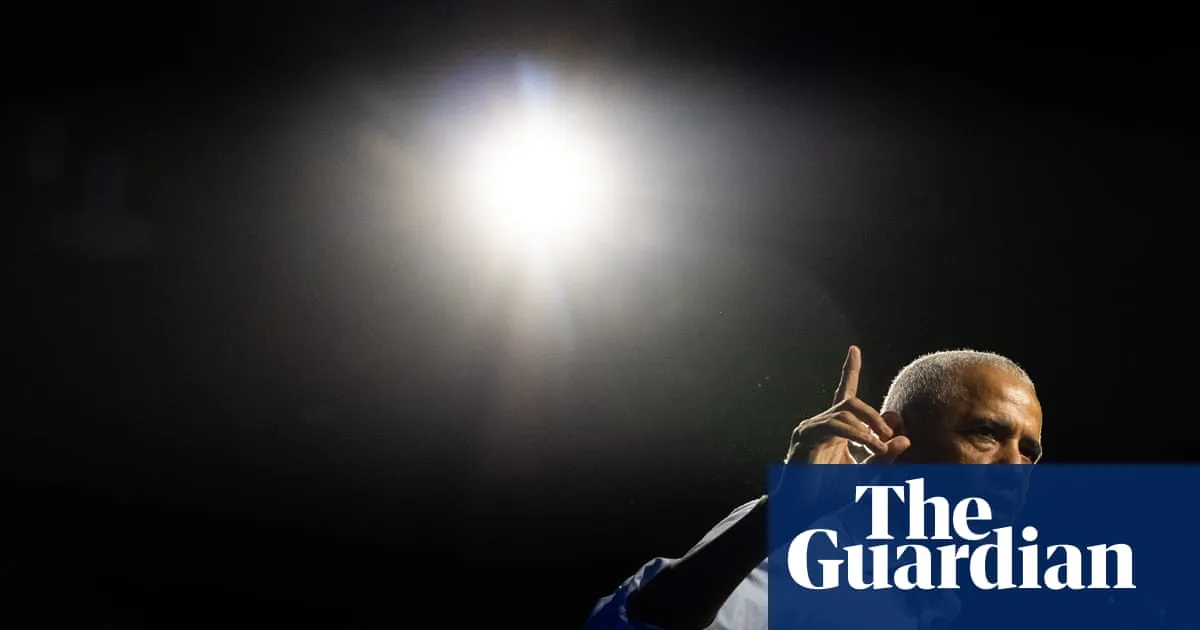
In a poignant address delivered in Pennsylvania, former President Barack Obama spoke out against the recent killing of political commentator Charlie Kirk. Speaking to a crowd at the Jefferson Educational Society in Erie, he emphasized that the nation is currently “at an inflection point.” Obama underscored that while political violence is not a new phenomenon in American history, it is fundamentally “anathema to what it means to be a democratic country.”
Obama explicitly condemned the violent attacks that have marred the political landscape this year, including the tragic deaths of Kirk and Minnesota lawmaker Melissa Hortman. He referred to these incidents as “a tragedy,” highlighting the urgent need for unity rather than division. The former president criticized Donald Trump for deepening societal rifts instead of fostering reconciliation. “There are no ifs, ands or buts about it,” Obama stated, “the central premise of our democratic system is that we must be able to disagree and engage in contentious debates without resorting to violence.”
In his remarks, Obama cautioned that the response to Kirk’s assassination could exacerbate existing political and cultural divisions. He noted that some rhetoric coming from the White House has contributed to this confusion, asserting that it is misguided to label individuals as enemies before the facts surrounding such tragedies are fully understood.
Politicians on the right, including Trump, have pointed fingers at the “radical left” for creating a perilous political climate. Conversely, many on the left argue that these accusations serve as a pretext for an authoritarian suppression of free speech. Obama, who has maintained a relatively low profile since leaving office, addressed the repercussions of Trump’s rhetoric in light of Kirk’s murder.
Reflecting on his own experiences during crises, Obama drew parallels to his leadership following the 2015 shooting of nine Black parishioners in Charleston, South Carolina, and former President George W. Bush’s response to the September 11 attacks. He emphasized that a president's role in times of turmoil is to remind citizens of the common bonds that unite them. He stated, “The sentiment among Trump and his aides, referring to political foes as ‘vermin’ or ‘enemies,’ speaks to a broader problem.”
Kirk, known for his significant influence in conservative politics and as a close ally of Trump, founded Turning Point USA, one of the largest political organizations in the U.S. Following Kirk’s death, Trump has amplified threats against what he terms the “radical left,” raising concerns that his administration might exploit the situation to stifle political dissent.
The White House responded to Obama’s remarks by placing blame on him for the growing animosity in the country. Abigail Jackson, a spokesperson, stated, “Obama used every opportunity to sow division and pit Americans against each other.” This statement reflects a broader narrative where political leaders across the spectrum, including House Speaker Mike Johnson, Joe Biden, and Bush, have called for a cessation of political violence and a return to rational discourse.
In his speech, Obama aimed to navigate a middle ground, commending Utah Governor Spencer Cox for exemplifying how to engage in political disagreement while adhering to a basic standard of civility in public debate. He contended that the inclination to assign blame to an “enemy” is fundamentally flawed. “We’re going to suggest that somehow that enemy was at fault, and we are then going to use that as a rationale for trying to silence discussion around who we are as a country,” he warned, deeming this approach a significant error.
While acknowledging that he disagreed with Kirk’s viewpoints, Obama stressed that this does not diminish the tragedy of his death. He affirmed, “Denouncing political violence and mourning its victims doesn’t mean we can’t have a debate about the ideas that were promoted.” He emphasized the importance of honest and respectful discussions, even when opinions diverge significantly.
In closing, Obama referenced Trump’s recent deployment of National Guard troops in Washington and the introduction of ID checks by federal agents in Los Angeles. He urged citizens and elected officials to remain vigilant regarding decisions that could undermine democratic norms. “What you’re seeing, I think, is a departure from the guardrails and norms that I believed I had to follow as president,” he remarked, “and that makes this a dangerous moment.”